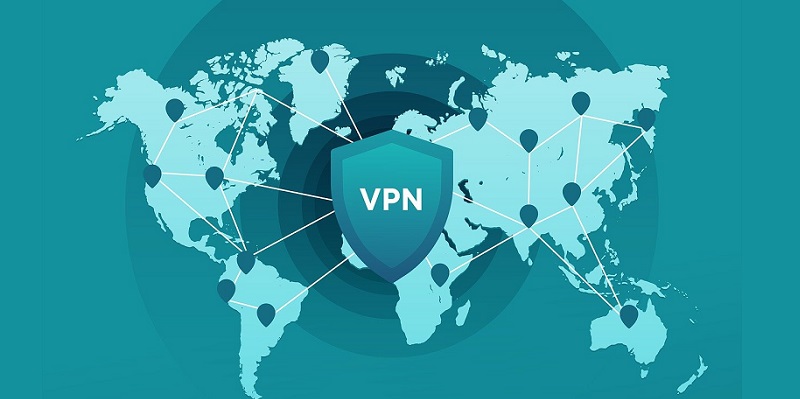In an evolving digital landscape where online privacy and security are paramount, VPNs have emerged as go-to tools for safeguarding sensitive data and ensuring anonymous browsing. However, recent discoveries of a combination of two common security flaws, known as TunnelCrack, in VPNs have raised concerns about their vulnerability. This comprehensive article delves into the intricacies of these vulnerabilities, potential risks they pose to users, and protective measures to mitigate their impact.
Explanation of the two common security flaws found in VPNs
TunnelCrack is a term coined to describe the fusion of two critical vulnerabilities commonly found in VPNs. The first flaw, known as LocalNet attacks, occurs when a user connects to an unsecured Wi-Fi network, enabling malicious actors to exploit the network’s weaknesses. By doing so, adversaries gain the ability to steal sensitive information, intercept data, attack devices, and even tamper with communications. The second vulnerability, termed ServerIP attacks, involves the manipulation of routing tables by unscrupulous Internet Service Providers (ISPs) or compromised networks. This manipulation deceives the victim into transmitting their traffic outside the secure VPN tunnel, leading to potential breaches of confidentiality.
Potential risks and consequences of exploiting these vulnerabilities
The repercussions of exploiting TunnelCrack vulnerabilities are severe and far-reaching. Malicious actors can gain unauthorized access to sensitive user traffic, enabling them to read and gather information for malicious purposes. This includes personal data, financial credentials, login credentials, and any other data transmitted over the VPN. Moreover, adversaries armed with the ability to manipulate routing tables introduce a deceptive layer, posing significant risks to users’ connections. This exploitation can lead to unauthorized interception, modification, or destruction of data, compromising the integrity and security of users’ online activities.
It is stated that these vulnerabilities are present in practically every VPN product across all platforms
This sobering fact highlights the widespread nature of TunnelCrack vulnerabilities. It is crucial to recognize that these flaws are not restricted to specific VPN products or platforms. Virtually every VPN product, regardless of its encryption claims, can be susceptible to these vulnerabilities, necessitating a paradigm shift in how VPN security is assessed and managed.
Dismissal of claims of invulnerability by VPNs that use “military-grade encryption” or invented encryption methods
Disturbingly, even VPNs that boast “military-grade encryption” or claim to implement proprietary encryption methods are not immune to TunnelCrack vulnerabilities. The combination of security flaws operates independently of the encryption algorithms used by VPNs, effectively debunking any unfounded claims of invulnerability.
Description of LocalNet attacks and how they can be exploited on unsecured Wi-Fi networks
LocalNet attacks, one of the two components of TunnelCrack, pose significant threats to users’ security when they connect to unsecured Wi-Fi networks. These networks often lack proper security protocols, making it easier for adversaries to launch attacks. By exploiting these vulnerabilities, attackers can gain unauthorized access to user data, intercept communications, compromise devices, and exploit any weaknesses in the network infrastructure.
Explanation of Server IP attacks and how they can be manipulated by shady ISPs or unsecured networks
The second component of TunnelCrack, ServerIP attacks, presents a unique set of challenges. In this attack scenario, malicious entities leverage compromised ISPs or unsecured networks to manipulate routing tables. By doing so, they deceive unsuspecting victims into diverting their traffic outside the protective confines of the VPN tunnel. This technique opens the door for potential breaches, allowing adversaries to intercept, modify, or redirect sensitive user data.
Importance of keeping VPN software up to date to protect against these vulnerabilities
To maximize protection against TunnelCrack vulnerabilities, users must diligently keep their VPN software up to date. VPN providers regularly release updates that address security vulnerabilities discovered in their software, ensuring that users are protected from known exploits. Ignoring these updates can leave users exposed to potential attacks targeting unpatched vulnerabilities.
Mention of added protection provided by websites using HTTP Strict Transport Security (HSTS) with HTTPS
Websites that employ HTTP Strict Transport Security (HSTS) with HTTPS provide an additional layer of protection against TunnelCrack vulnerabilities. HSTS ensures that communication between the user’s browser and the website is always encrypted and authenticated, mitigating the risk of interception and manipulation of website traffic.
Highlighting the default security provided by mobile applications through HTTPS
In modern times, mobile applications have become ubiquitous, and most default to using HTTPS for secure communication. This default security provides users with additional protection against TunnelCrack vulnerabilities when accessing the internet via their mobile devices. By using applications with built-in HTTPS support, users can ensure that their data remains encrypted and shielded from potential exploits.
Awareness that VPNs can also defend against outdated and less secure protocols, resulting in potential vulnerabilities
While VPNs are crucial for enhancing online privacy and security, it is important to be aware that they can inadvertently create vulnerabilities when defending against outdated and less secure protocols. As VPNs strive to provide secure connections, some users may unwittingly rely on outdated protocols that could be vulnerable to exploitation. It is essential to ensure that VPN configurations are up to date and leverage the latest and most secure protocols to avoid exposing oneself to unnecessary risks.
The discovery of TunnelCrack vulnerabilities in virtually every VPN product across all platforms highlights the urgent need for users to be vigilant and proactive in safeguarding their data and privacy. By understanding these vulnerabilities, users can make informed choices by keeping their VPN software up to date, opting for HTTPS-enabled websites, and leveraging secure mobile applications to mitigate potential risks. VPN providers, too, must remain diligent in addressing security flaws and prioritizing user protection to enhance the overall security posture of their services.

